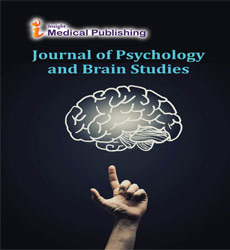Behavioural Psychotherapy in Younger Generation
Sushree Sunena*
Department of Psychology, Utkal University, Bhubaneswar, Odisha, India
- *Corresponding Author:
- Sushree Sunena
Department of Psychology
Utkal University, Bhubaneswar, Odisha, India
E-mail: sushreesunena04@gmail.com
Received Date: October 07, 2021; Accepted Date: October 12, 2021; Published Date: October 17, 2021
Citation: Sunena S (2021) Behavioural Psychotherapy in Younger Generation. J Psychol Brain Stud Vol.5 No.10:49.
Behaviour therapy, often known as behavioural psychotherapy, refers to clinical psychotherapy that employs techniques from behaviourism and/or cognitive psychology. It examines specific learned behaviours and how the environment or the mental states of others influence such behaviours, and it employs learning theory-based approaches such as responder or operant conditioning. Behavior analysts and cognitive-behavioral therapists are the two types of behaviourists who use these strategies. They are more likely to seek objectively measurable therapy outcomes.
Cognitive psychotherapy is occasionally used in conjunction with behavioural treatment. While cognitive behavioural therapy combines elements of both techniques, such as cognitive restructuring, positive reinforcement, habituation (or desensitisation), counterconditioning, and modelling. Applied behaviour analysis (ABA) is a branch of behaviour analysis that focuses on functionally assessing how behaviour is influenced by the observable learning environment and changing such behaviour through contingency management or exposure therapies, both of which are used in clinical behaviour analysis therapies or other interventions based on the same learning principles. Edward Thorndike appears to have coined the term "behaviour modification" in 1911. The concept "changing behaviour" appears frequently in his article Provisional Laws of Acquired Behavior or Learning.
Joseph Wolpe's study group utilised the word in early research in the 1940s and 1950s. The experimental tradition in clinical psychology used it to refer to empirically produced psycho- therapeutic approaches. Since then, it has been referred to approaches for enhancing adaptive behaviour through reinforcement and lowering maladaptive behaviour through extinction or punishment. Behavior therapy and applied behaviour analysis are two related words. In general, behaviour therapy is thought to have originated in three places: South Africa (Wolpe's group), the United States (Skinner), and the United Kingdom (Rachman and Eysenck). Each has its own unique perspective on behavioural issues. Eysenck, in particular, saw behaviour issues as a result of the interaction of personality traits, environment, and behaviour.
The behavioural approach to therapy posits that behaviour related with psychiatric issues develops via the same learning processes that influence the development of other behaviours. As a result, behaviourists view personality issues in terms of how personality develops. They do not view behaviour disorders to be something that a person has, but rather how learning has caused specific people to behave in a certain way in certain settings. Behaviour therapy is based on Ivan Pavlov's classical conditioning concepts and B.F. Skinner's operant conditioning ideas. Classical conditioning occurs when a neutral stimulus precedes a stimulus that elicits a reflexive reaction. The theory is that if the neutral stimulus and whichever additional input prompts a reaction are combined frequently enough, the neutral stimulus will generate the reflexive response. The term "operant conditioning" refers to how rewards and punishments can either promote or diminish particular behaviours.
Open Access Journals
- Aquaculture & Veterinary Science
- Chemistry & Chemical Sciences
- Clinical Sciences
- Engineering
- General Science
- Genetics & Molecular Biology
- Health Care & Nursing
- Immunology & Microbiology
- Materials Science
- Mathematics & Physics
- Medical Sciences
- Neurology & Psychiatry
- Oncology & Cancer Science
- Pharmaceutical Sciences
